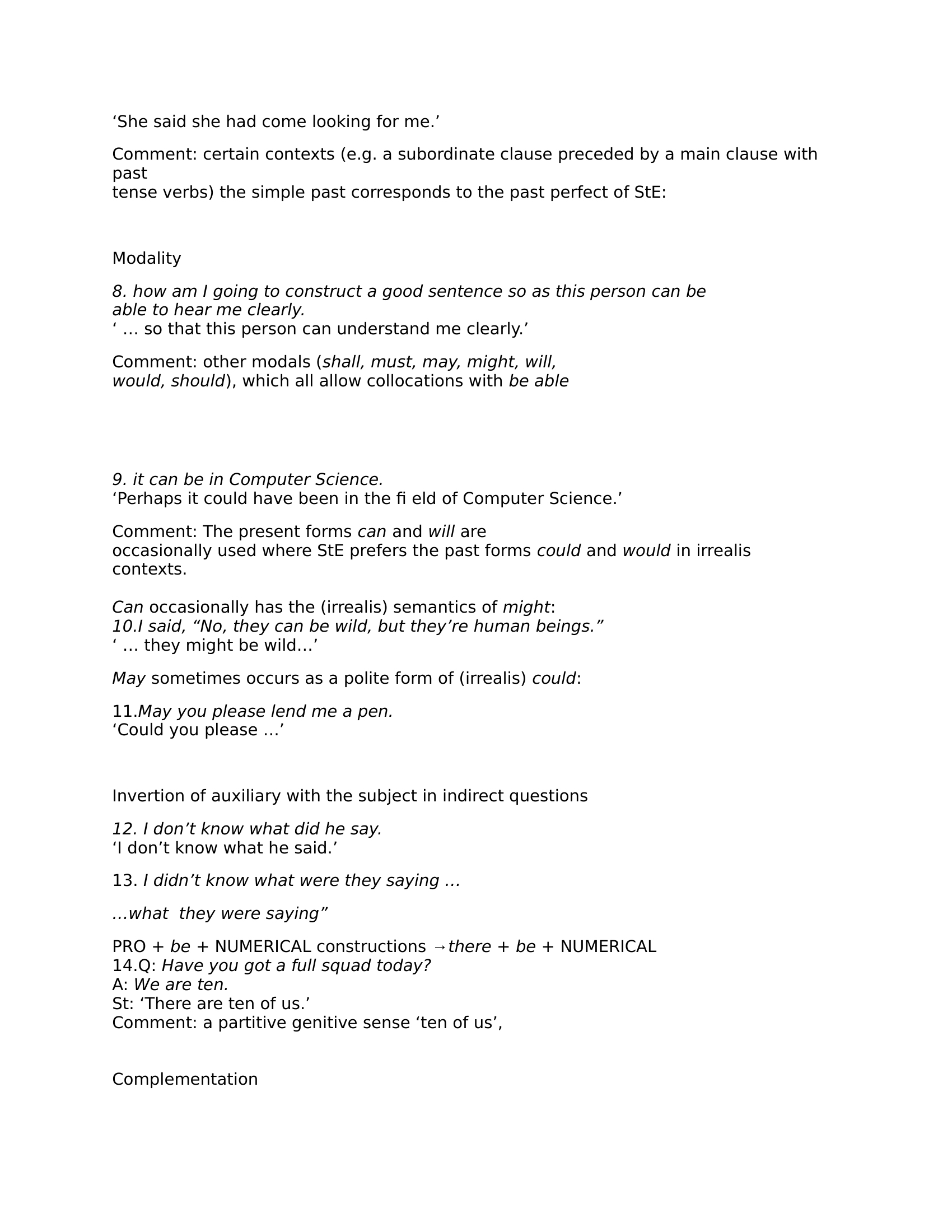black south african english
Publié le 18/03/2020

Extrait du document
«
‘She said she had come looking for me.’
Comment: certain contexts (e.g.
a subordinate clause preceded by a main clause with
past
tense verbs) the simple past corresponds to the past perfect of StE:
Modality
8.
how am I going to construct a good sentence so as this person can be
able to hear me clearly.
‘ … so that this person can understand me clearly.’
Comment: other modals ( shall, must, may, might, will,
would, should ), which all allow collocations with be able
9.
it can be in Computer Science.
‘Perhaps it could have been in the fi eld of Computer Science.’
Comment: The present forms can and will are
occasionally used where StE prefers the past forms could and would in irrealis
contexts.
Can occasionally has the (irrealis) semantics of might :
10.I said, “No, they can be wild, but they’re human beings.”
‘ … they might be wild…’
May sometimes occurs as a polite form of (irrealis) could :
11.
May you please lend me a pen.
‘Could you please …’
Invertion of auxiliary with the subject in indirect questions
12.
I don’t know what did he say.
‘I don’t know what he said.’
13.
I didn’t know what were they saying …
…what they were saying”
PRO + be + NUMERICAL constructions → there + be + NUMERICAL
14.Q: Have you got a full squad today?
A: We are ten.
St: ‘There are ten of us.’
Comment: a partitive genitive sense ‘ten of us’,
Complementation.
»
↓↓↓ APERÇU DU DOCUMENT ↓↓↓
Liens utiles
- Nelson Mandela Nelson Mandela, born in 1918, South African activist, winner of the 1993 Nobel Peace Prize, and the first black president of South Africa (1994-1999).
- ANC (African National Congress of South Africa).
- African Theater I INTRODUCTION African Theater, traditional, historical, and contemporary dramatic forms in Africa south of the Sahara.
- African Theater I INTRODUCTION African Theater, traditional, historical, and contemporary dramatic forms in Africa south of the Sahara.
- Subject: What are the impacts of racism on black people in the United States












